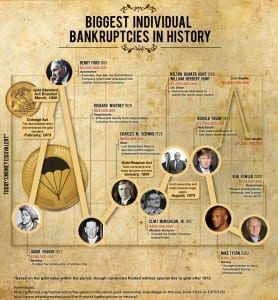What Section of the Bankruptcy Code Applies to Student Loans?
What Does Bankruptcy Code Specifically Say About Student Loans? By Jay Weller Section 11 USC 523(a)(8) of the US Bankruptcy Code is the operative Section in regards to Student Loans. Section 523(a)(8) States STUDENT LOANS ARE NOT DISCHARGED UNLESS: Unless excepting such debt from discharge under this paragraph would impose an UNDUE HARDSHIP on the debtor and the debtor’s dependants, for- (A)(i) an EDUCATIONAL OVERPAYMENT or LOAN MADE, INSURED, or GUARANTEED by a GOVERNMENTAL UNIT or NONPROFIT INSTITUTION; or made under ANY PROGRAM FUNDED in Read More +



